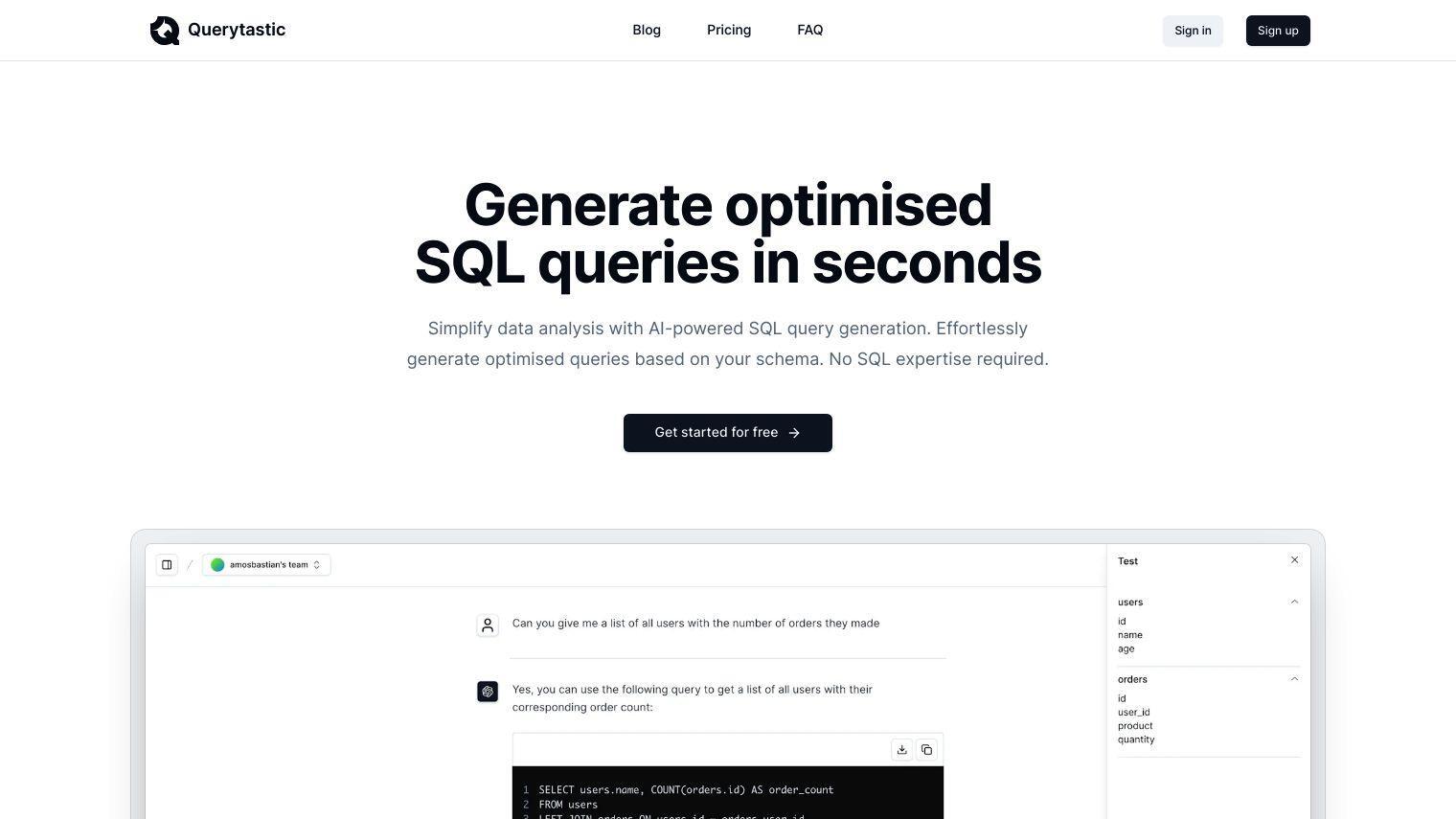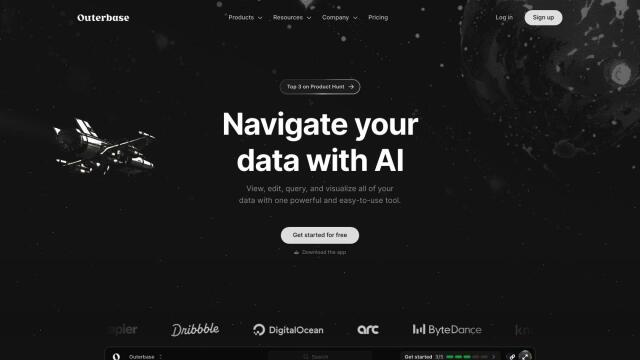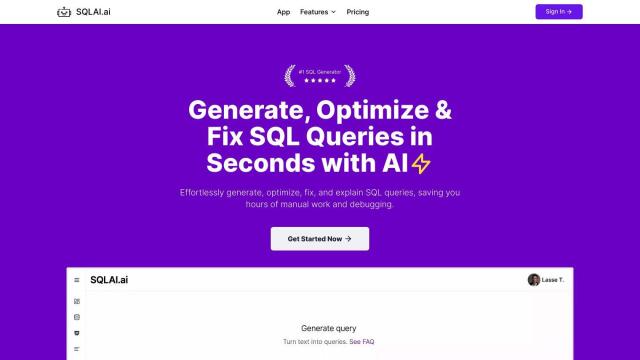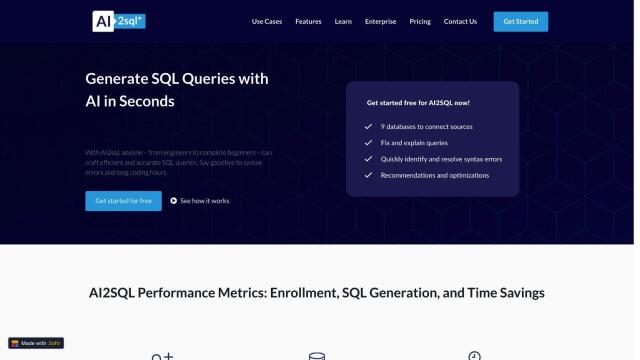Querytastic is a tool that makes data analysis easier by creating optimized SQL queries with AI technology. It's designed to be easy to use so people with different levels of technical expertise can create queries that are accurate and efficient without needing to know a lot about SQL.
Querytastic supports a variety of databases, including BigQuery, DB2, Apache Flink, Apache Hive, MariaDB, MySQL, PostgreSQL, SQLite and TransactSQL (Microsoft SQL Server). It lets you quickly create queries for different data sets with an interface that's designed to be easy to use, so you can get more done with your database.
Some of the key features of Querytastic include:
- Easy SQL Queries: Generate accurate and efficient queries without needing to know a lot of SQL.
- Database creation and schema upload: Create new databases and upload schemas easily.
- Optimized query generation: Ask your questions and get expertly optimized SQL queries for your schema.
- Chat history and management: Keep a record of past queries and conversations for reference.
- Team collaboration: Invite team members to join your Querytastic project to increase productivity and collaboration.
Querytastic has a single pricing plan for €4.99 EUR/month that includes up to 1000 messages, team member management, chat history and Twitter support. The simple pricing means you're not paying for things you don't need and can get to the features you need quickly.
The tool is geared for database administrators trying to optimize complex schema, developers trying to understand existing database structures and analysts trying to understand data lineage and dependencies. By using AI, Querytastic makes data analysis more accessible and faster, so you can focus on what's important -- getting useful information out of your data instead of writing SQL.
Published on June 14, 2024
Related Questions
Tool Suggestions
Analyzing Querytastic...







